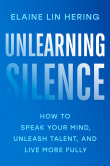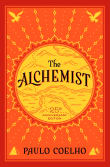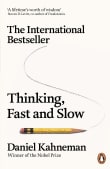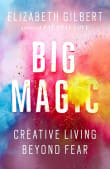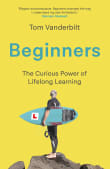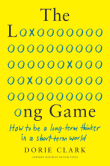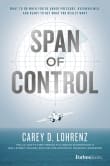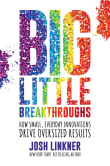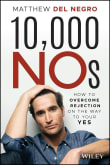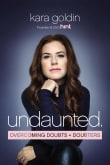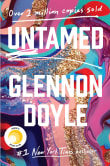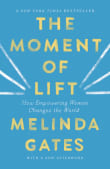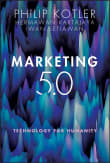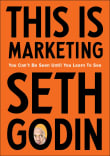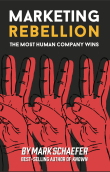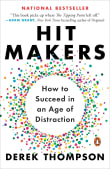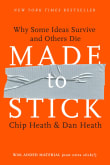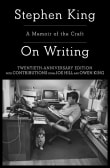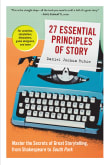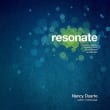Think Again
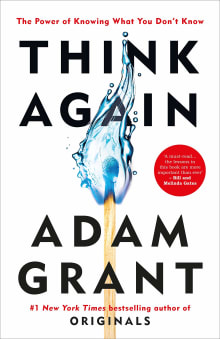
Book description
#1 New York Times Bestseller
"THIS. This is the right book for right now. Yes, learning requires focus. But, unlearning and relearning requires much more-it requires choosing courage over comfort. In Think Again, Adam Grant weaves together research and storytelling to help us build the intellectual and emotional muscle we…
Why read it?
10 authors picked Think Again as one of their favorite books. Why do they recommend it?

I loved Adam Grant's book because he is a great storyteller who entices me with tantalizing examples of how to think like a scientist and lead with inquisition. The book not only challenged me to think differently but also shared practical tools to empower me to question my initial reactions or beliefs when presented with opposing opinions or challenges.
Grant does a great job of explaining the complex topic of what being open-minded really means. He made it easy for me to read and digest so I could put his lessons into practice and see immediate results.
From Rebeccah's list on trust, change, and cultivating energy.

If work is going to work again, we need to be curious. The world is moving fast and the issues we are facing are arguably more complex than ever before, so we must avoid at all costs the rigid my way or the highway thinking.
Sometimes it feels good when we lock a solution in quickly because we feel we have solved the problem perhaps ticked the box. I really encourage people to stay in the messy middle and to “think again” to make sure it is not the quick solution, but they stick with the problem solving so they…
From Sharon's list on how to make work, work again (to make sure that you and your workplace thrive).

One of the central themes of this book is that in order to successfully adapt and make good decisions in today’s rapidly changing world, the ability to rethink and unlearn may be more important than the ability to think and learn.
The author’s appeal to readers to think like a scientist and to embrace being wrong resonates with my own beliefs about the value of an evidence-based approach to decision making. Grant uses vivid and compelling, real-life examples to illustrate research-based principles to great effect.
I love the fact that he provides “actions for impact,” specific behaviors that each of…
From Elissa's list on less businessy business that can help managers.
If you love Think Again...

Throughout life, we often find ourselves stuck on negative thoughts —truths we’ve rehearsed until they become unshakeable beliefs, like the damaging mantra, “I’ll never be enough,” which I personally have fought my entire life.
Grant’s book, however, urges us to step back and reassess these thoughts. He extends an invitation to weather the discomfort of rethinking as a route to growth. Filled with authentic narratives of individuals shifting their perspectives for the better, Think Again is a crucial nudge towards the transformative power of challenging our own thinking.
From Luana's list on moving through anxiety toward what matters most.

A central question for anyone who wants to make change in organizations and society: when and how do people change their minds? Adam Grant brings a fantastic mix of empirical findings, rich storytelling, and his own experience as a scholar and consultant to this question. How can we learn to be more flexible in our own thinking, in response to new evidence in a rapidly changing world? How can we create the conditions where others change their minds? How can our society enter a mode of learning and scientific problem solving, beyond the polarization that gets us so stuck? In…
From Jason's list on changing the world, starting with yourself.

Penetrating the established opinions of others can oftentimes feel impossible. Adam Grant reminded me that it may be a hard-fought battle but not an impossible one. Learn how an international debate champion wins arguments, how a black musician persuades white supremacists to abandon hate, and how Yankees fans were convinced to root for the Red Sox.
Being a Yankees fan, this one was especially impressive.
Less art and more science, this is the book that will give you hope that anyone’s mind can be changed with the right strategies.
From Matthew's list on for effective communication.
If you love Adam Grant...

A common theme I’ve noticed about companies that made a wrong turn or missed a trend and headed downhill is in a key moment they refused to rethink their perspective. It typically doesn’t come from ignorance but arrogance. They assume the formula they used to be successful in the past will always work in the future. Adam Grant wakes us up to the power of rethinking what we thought we learned. Only then will you be open enough to consider the type of new learning required to remain successful in our rapidly changing world. The main lesson I learned here…
From Keith's list on understanding how marketing has changed.

You might think that a book about rethinking, listening, and unlearning is a little dry. But buckle your seatbelt. This book couldn’t be timelier. It is about how we often act in the comfort of conviction rather than the discomfort of doubt. We want to feel good rather than think hard, be curious, flexible, and humble. This is a must-read given our socio-political zeitgeist.
From Marcia's list on for women to better understand their world.

Grant explains why, in holding fast to our convictions, we may be doing ourselves a disservice. We change out other things in our life that we know are “outdated” – our technology, our wardrobes, etc…but often we hold on to beliefs that may not be serving us well. Think Again lays out the case for re-examining long-held beliefs and opening our minds to other viewpoints. Grant encourages us to look at disagreement as an opportunity to learn and grow and expand our minds. The book will also teach you how to argue more constructively and compassionately – and who wouldn’t…
From Alison's list on how to tackle life’s mountains.
If you love Think Again...

Best-selling author and Wharton School psychologist Adam Grant posits that in today’s turbulent world, it’s increasingly important that we be able not only to think and learn, but to rethink and unlearn. To do this, we must develop new cognitive skills, a more open and curious mindset, and a humble attitude about what we actually know and don’t know. I particularly love the way Grant’s book gently guides us toward what he calls “confident humility”--a state wherein you’re comfortable admitting “I don’t know” but you also feel confident that “I can find out.” Grant also offers tips on how…
From Warren's list on lifelong learning.
If you love Think Again...
Want books like Think Again?
Our community of 12,000+ authors has personally recommended 100 books like Think Again.
